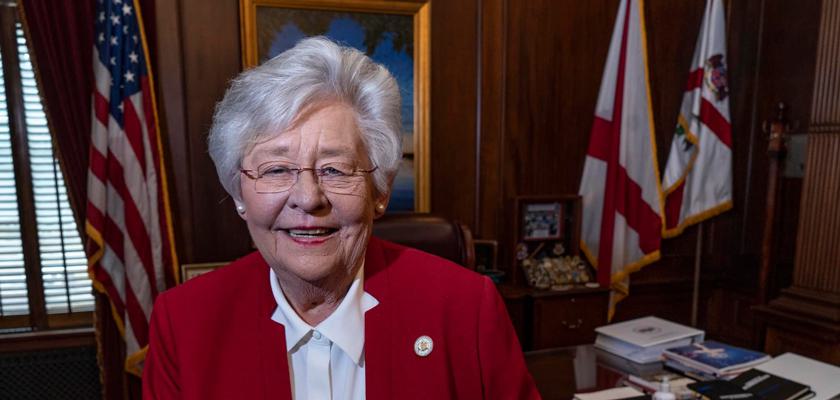Governor Kay Ivey is focusing on religious liberty in the most recent executive order, following years of tension surrounding religious exemptions for the COVID-19 vaccine.
Executive Order 733 ensures the enforcement of the Alabama Religious Freedom Amendment to the state Constitution, ratified in 1998.
The amendment came after GOP lawmakers believed the Supreme Court of the United States (SCOTUS) had weakened religious protection provided in the First Amendment of the U.S. Constitution, such as in The Employment Division v. Smith.
"The purpose of the Alabama Religious Freedom Amendment is to guarantee that the freedom of religion is not burdened by state and local law; and to provide a claim or defense to persons whose religious freedom is burdened by government," Alabama's state constitutional amendment says.
Religious liberty was the focal point of several lawsuits relating to various employees refusing the compulsory COVID-19 vaccine.
In July 2022, over 50 former employees at the Austal plant in Mobile filed a federal lawsuit claiming the company violated their civil rights after they sought religious and medical exemptions for the COVID-19 vaccine.
The employees were fired after refusing to take the vaccine, despite a 2021 law passed by the legislature allegedly requiring companies to honor religious vaccine exemptions.
In September 2022, four former retirement home workers at Westminster Village in Spanish Fort filed a lawsuit against their former employer after allegedly being fired for using a religious exemption to refuse the COVID-19 vaccine.
Fairhope attorney Brian Dasinger, who represents the Austal employees and the Westminister Village employees, said the state's 2021 law provided no penalties for violation, making it near-useless.
The executive order states that state executive branch agencies shall, at a minimum, provide specific protections for the religious exercise of government licensees, contractors and grant recipients, recipients of government benefits, and state employees.
Another provision requires agencies to allow state employees to express their faith to the same extent that they allow employee expression that is not religious in nature.
"Religious freedom is the cornerstone of the American way of life, and as governor, I will always protect the rights of Alabamians and ensure they are free to exercise their beliefs as provided in the Constitution," Ivey said. "As I have promised, under my watch, our state government will always reflect the values of our people."
To connect with the author of this story, or to comment, email craig.monger@1819news.com.
Don't miss out! Subscribe to our newsletter and get our top stories every weekday morning









